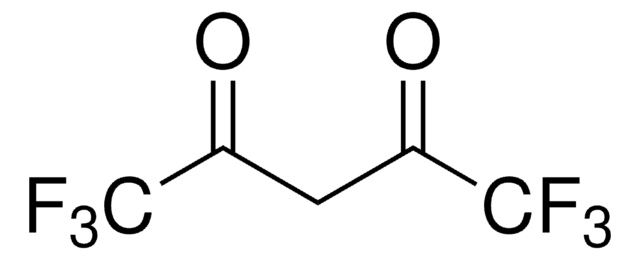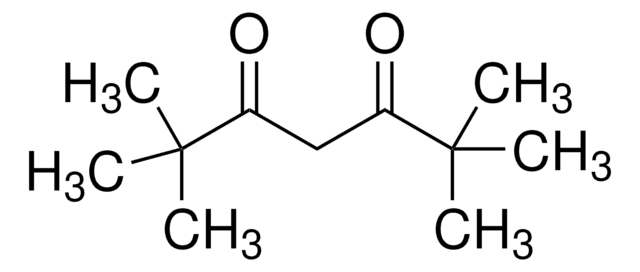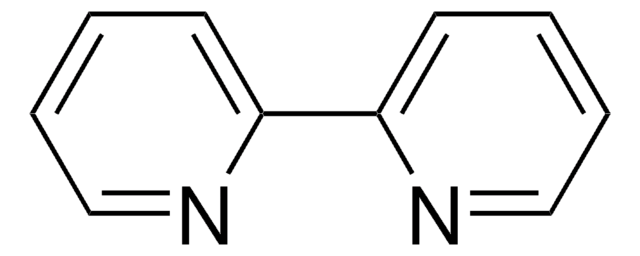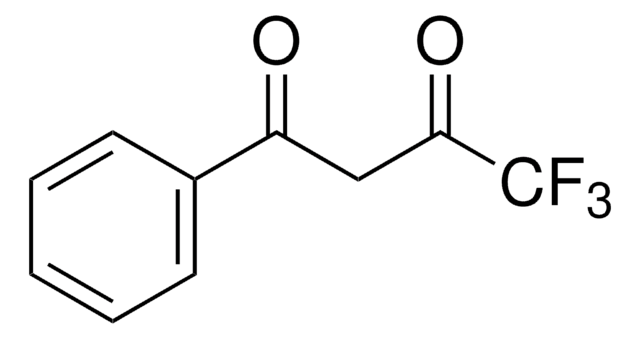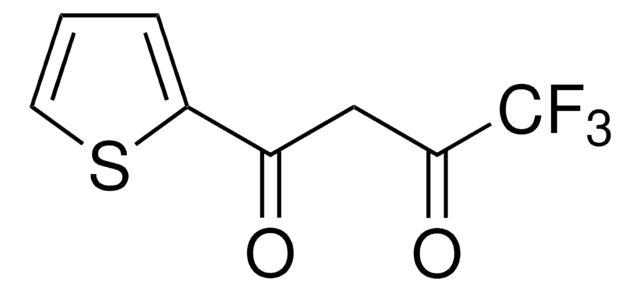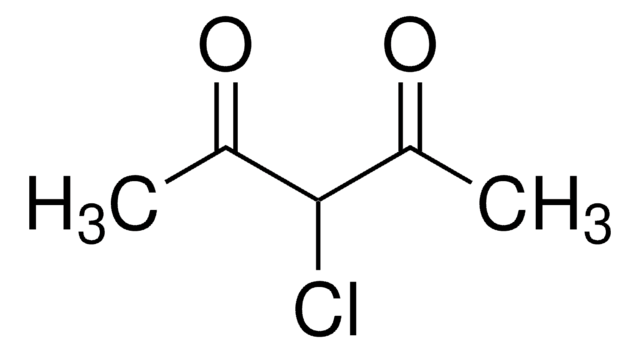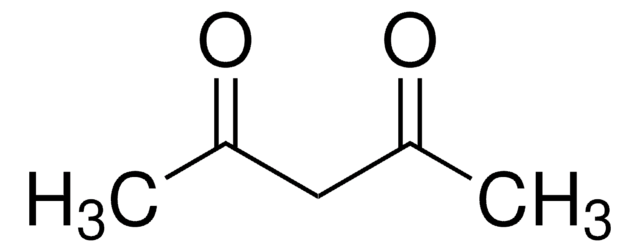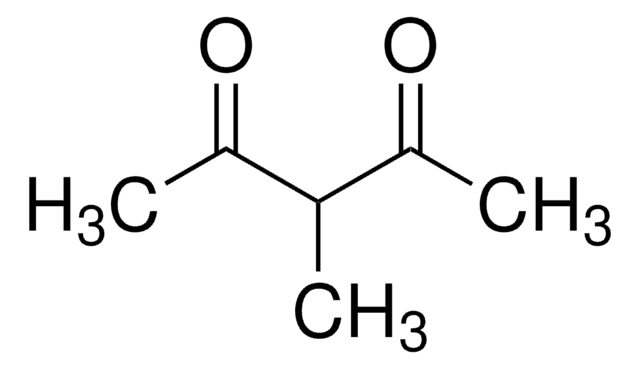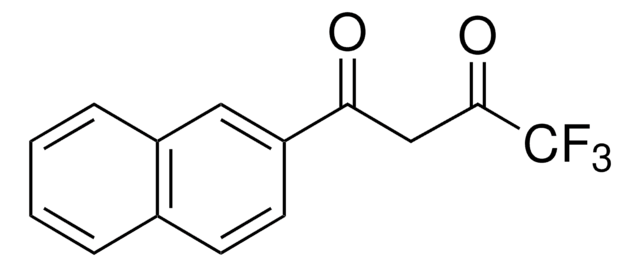235970
1,1,1-Trifluoro-2,4-pentanedione
98%
Synonym(s):
α,α,α-Trifluoroacetylacetone, 1,1,1-Trifluoroacetylacetone
About This Item
Recommended Products
Quality Level
Assay
98%
form
liquid
refractive index
n20/D 1.388 (lit.)
bp
105-107 °C (lit.)
density
1.27 g/mL at 25 °C (lit.)
functional group
fluoro
ketone
storage temp.
2-8°C
SMILES string
CC(=O)CC(=O)C(F)(F)F
InChI
1S/C5H5F3O2/c1-3(9)2-4(10)5(6,7)8/h2H2,1H3
InChI key
SHXHPUAKLCCLDV-UHFFFAOYSA-N
Looking for similar products? Visit Product Comparison Guide
Related Categories
General description
Application
Signal Word
Warning
Hazard Statements
Precautionary Statements
Hazard Classifications
Acute Tox. 4 Dermal - Acute Tox. 4 Inhalation - Acute Tox. 4 Oral - Flam. Liq. 3
Storage Class Code
3 - Flammable liquids
WGK
WGK 3
Flash Point(F)
78.8 °F - closed cup
Flash Point(C)
26 °C - closed cup
Personal Protective Equipment
Regulatory Listings
Regulatory Listings are mainly provided for chemical products. Only limited information can be provided here for non-chemical products. No entry means none of the components are listed. It is the user’s obligation to ensure the safe and legal use of the product.
FSL
Group 4: Flammable liquids
Type 2 petroleums
Hazardous rank III
Water insoluble liquid
JAN Code
235970-25G:
235970-BULK:
235970-VAR:
235970-10G:
Choose from one of the most recent versions:
Already Own This Product?
Find documentation for the products that you have recently purchased in the Document Library.
Customers Also Viewed
Global Trade Item Number
| SKU | GTIN |
|---|---|
| 235970-25G | 4061838785381 |
| 235970-10G | 4061838785374 |
Our team of scientists has experience in all areas of research including Life Science, Material Science, Chemical Synthesis, Chromatography, Analytical and many others.
Contact Technical Service